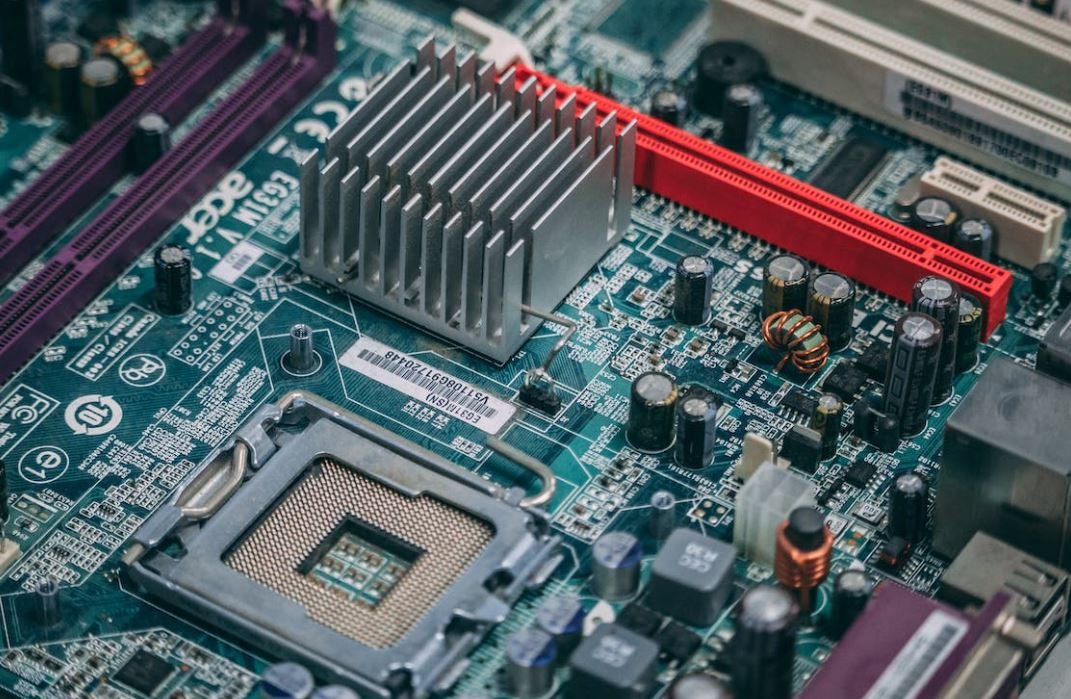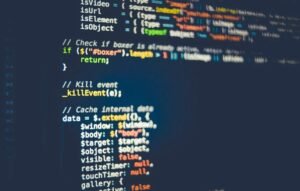Will AI Take Software Engineer Jobs?
The rapid advancements in artificial intelligence (AI) have brought both excitement and concerns regarding its impact on various industries and professions. Software engineering, being a critical field in the tech industry, is not exempt from these discussions. The question on many minds is: Will AI eventually replace software engineers and eliminate their jobs altogether? In this article, we will explore the potential implications of AI on software engineer jobs and determine whether it’s a valid concern or a misconception.
Key Takeaways:
- AI’s impact on software engineer jobs is still uncertain but can enhance and streamline certain aspects of the software development process.
- Software engineers need to adapt and acquire new skills to stay relevant in the evolving tech landscape.
- Human creativity, problem-solving, and collaboration are difficult to replace with AI.
- AI can potentially automate repetitive and mundane tasks, enabling software engineers to focus on more complex and innovative work.
The Current State of AI in Software Engineering
As of now, AI is primarily being used in software engineering to assist developers rather than replace them entirely. AI tools and technologies are empowering software engineers by automating certain tasks, providing recommendations, and improving efficiency. For instance, AI-powered code analysis tools can help identify errors and suggest optimizations, leading to faster development cycles and higher-quality code.
While AI is augmenting software engineering processes, the crucial role of software engineers in designing, building, and maintaining complex systems remains indispensable.
The Role of Software Engineers in an AI-Driven Future
Software engineers play a critical role in shaping and implementing AI-driven solutions. In an AI-driven future, they will need to adapt and acquire new skills to leverage AI effectively. Software engineers will have to focus on areas where their expertise is uniquely valuable, such as:
- Developing AI algorithms and models.
- Ensuring ethical and responsible use of AI technologies.
- Evaluating and integrating AI frameworks and libraries.
| AI | Human |
|---|---|
| Optimizing code | Innovating and pushing boundaries |
| Automating repetitive tasks | Collaborating on complex projects |
| Performing code analysis | Identifying unique problem-solving approaches |
Benefits and Challenges of AI in Software Engineering
Implementing AI in software engineering comes with various benefits and challenges. Let’s explore these in more detail:
- **Benefits**:
- Increased productivity and efficiency through automation.
- Faster software development cycles with AI-assisted coding and testing.
- Improved code quality and reliability through AI-powered analysis.
- **Challenges**:
- Ensuring ethical AI use and addressing potential biases in algorithms.
- Keeping up with the rapid pace of AI advancements and new tools.
- Overcoming the initial learning curve and implementation costs.
| Year | Investment (in billions) |
|---|---|
| 2017 | 3.8 |
| 2018 | 5.9 |
| 2019 | 9.8 |
Future Outlook: Coexistence and Collaboration
In conclusion, it is unlikely that AI will completely replace software engineer jobs. While AI can automate certain tasks and enhance productivity, the creative and problem-solving skills of software engineers remain vital. Rather than replacing professionals, AI will likely augment their capabilities, enabling them to focus on more complex and innovative work.
As the tech industry continues to evolve, software engineers should embrace AI as a tool and hone their skills to work alongside this transformative technology.

Common Misconceptions
AI will replace software engineers completely
One common misconception is that AI will completely replace software engineers, rendering their skills and expertise obsolete. However, this is not entirely true.
- AI can automate certain repetitive tasks, allowing software engineers to focus on more complex and creative problem-solving.
- Software engineers are essential in designing, developing, and maintaining the AI systems themselves.
- The demand for specialized software engineering skills will continue to grow as AI evolves and becomes more sophisticated.
There won’t be any job opportunities for software engineers
Another misconception is that AI will eliminate job opportunities for software engineers. While AI may change the nature of some roles, it doesn’t mean there won’t be any job opportunities for software engineers.
- AI will create new job roles that focus on developing and managing AI systems and algorithms.
- Software engineers will still be needed to build, integrate, and maintain AI systems within various industries.
- As technology advances, there will be a growing demand for software engineers with AI expertise.
AI can replace the need for human creativity and problem-solving
A misconceived notion is that AI can completely replace human creativity and problem-solving skills. While AI can assist software engineers in certain tasks, it cannot completely replace human ingenuity.
- Software engineers bring a unique perspective and creativity to problem-solving that AI algorithms cannot replicate.
- The ability to think critically, adapt, and solve complex problems creatively remains a valuable human skill that AI lacks.
- AI can augment human capabilities by providing suggestions and insights, but the final decision-making still relies on human judgment and expertise.
Software engineers will become obsolete in the age of AI
Many people assume that software engineers will become obsolete as AI technology becomes more advanced. However, this view overlooks the dynamic nature of the field and the adaptability of software engineers.
- Software engineers can constantly update their skills and knowledge to stay relevant in the face of evolving AI technology.
- AI is a tool that software engineers can leverage to enhance their work, rather than replace it entirely.
- As AI technology progresses, software engineers will play a crucial role in addressing ethical considerations and ensuring the responsible development and usage of AI systems.
AI will lead to mass unemployment for software engineers
There is a fear that AI will result in mass unemployment for software engineers. However, historical evidence suggests that technological advancements tend to create new job opportunities instead of eliminating them entirely.
- AI will create new roles that require a combination of technical and domain expertise.
- Software engineers can focus on higher-level tasks that require human judgment and decision-making, while AI handles repetitive tasks.
- Software engineering skills can be transferred and applied to other emerging fields and industries driven by AI, ensuring continued job opportunities.

Advantages of AI in Software Engineering
In recent years, the integration of Artificial Intelligence (AI) in various industries has been on the rise. The field of software engineering is no exception, as AI technologies are transforming the way software is developed and maintained. Here are some fascinating advantages of AI in software engineering:
1. Automated Bug Detection
Using advanced machine learning algorithms, AI can analyze code to identify potential bugs or vulnerabilities. By automating this process, software engineers can save significant time and effort, enabling them to focus on other critical tasks.
2. Intelligent Code Generation
With AI-powered tools, software engineers can automatically generate code snippets or even entire sections of code. AI algorithms learn from existing codebases and provide suggestions, significantly boosting productivity and reducing the time required for coding.
3. Enhanced Testing Capabilities
AI algorithms can perform intelligent testing on software applications, identifying edge cases and potential performance bottlenecks. By simulating various scenarios and analyzing vast amounts of data, AI helps software engineers create more robust and reliable software systems.
4. Predictive Maintenance
AI can play a crucial role in predicting and preventing software failures. By continuously monitoring system metrics and analyzing historical data, AI algorithms can proactively identify potential issues before they escalate, minimizing downtime and improving overall software performance.
5. Smarter Code Review
AI-powered code review tools can automatically analyze and provide feedback on code quality, adherence to best practices, and identification of potential optimization opportunities. This enables software engineers to improve their coding skills and ensures the development of more efficient software.
6. Intelligent Documentation
AI technologies can automatically generate documentation for software projects, capturing the details, functionalities, and dependencies of the codebase. This helps software engineers save valuable time spent on manual documentation and facilitates easier collaboration within development teams.
7. Natural Language Processing
AI-powered NLP techniques allow software engineers to interact with software development tools using natural language. This reduces the learning curve for new technologies and assists developers in quickly acquiring skills and knowledge.
8. Algorithm Optimization
AI algorithms can analyze and optimize complex algorithms used in software solutions. By identifying redundant or inefficient steps, AI can significantly improve the performance and efficiency of software, leading to faster and more accurate results.
9. Code Refactoring Assistance
AI tools can suggest code refactoring techniques to improve the readability, maintainability, and performance of existing codebases. By automating this process, software engineers can easily understand, modify, and enhance the code, ensuring long-term project success.
10. Effort Estimation and Planning
AI algorithms can analyze historical project data and assist in estimating the effort required for software development tasks. By leveraging this information, software engineers can create more accurate project plans and make informed decisions regarding resource allocation.
As AI continues to advance, software engineers must embrace these technologies as valuable tools that enhance their capabilities rather than represent a threat to their jobs. By leveraging the power of AI, software engineering can reach new heights, streamlining processes, and delivering more efficient and innovative software solutions.
Frequently Asked Questions
Will AI Take Software Engineer Jobs?
Will AI surpass software engineers in terms of skills and capabilities?
While AI has made significant advancements in recent years, it is unlikely to completely replace software engineers. AI technologies can assist and automate certain parts of the software development process, but they still require human oversight and expertise.
What aspects of software engineering can AI potentially automate?
AI can automate repetitive and time-consuming tasks such as code generation, testing, and bug fixing. It can also help with code reviews, documentation, and even writing basic code. However, complex decision-making, creative problem-solving, and architectural design are areas where human software engineers still hold a significant advantage.
What roles will software engineers play alongside AI?
Software engineers will continue to play a crucial role in leveraging AI technologies to enhance their work. They will need to adapt and learn how to work collaboratively with AI systems, utilizing their expertise to guide and ensure the effectiveness and ethical use of AI tools.
Will AI-driven tools make software development faster?
Yes, AI-driven tools can significantly speed up certain aspects of software development, leading to increased productivity. For example, AI-generated code can help reduce coding time while AI-powered testing frameworks can automate the testing process. This enables software engineers to focus more on complex problem-solving and innovation.
Can AI replace the need for software engineers altogether?
No, AI cannot replace software engineers entirely. While AI can automate certain tasks, software engineers bring a unique set of skills and knowledge to the table that is vital for the successful development, maintenance, and improvement of software systems. Additionally, they possess the ability to understand user requirements, analyze complex problems, and ensure the ethical and responsible deployment of AI technologies.
How can software engineers adapt to the rise of AI?
Software engineers can adapt to the rise of AI by continually updating their skills, staying informed about AI advancements, and learning to leverage AI technologies in their work. Emphasizing problem-solving, critical thinking, and creativity can also help software engineers remain valuable in an AI-driven world.
What new opportunities can arise for software engineers with AI?
The rise of AI presents new opportunities for software engineers. They can explore roles involving AI strategy, designing and training AI models, creating AI-powered applications, and optimizing AI algorithms. Software engineers can also play a significant part in addressing the ethical concerns associated with AI deployment.
Will AI eventually lead to a decline in demand for software engineers?
While AI may change the nature of some software engineering tasks, it is unlikely to lead to a decline in demand for software engineers overall. As AI technologies advance, new software applications and systems will be developed, creating a continued need for skilled professionals who can work alongside and enhance the capabilities of AI systems.
How can software engineers future-proof their careers in an AI-driven world?
To future-proof their careers in an AI-driven world, software engineers can focus on developing skills that complement AI technologies, such as data analysis, machine learning, and AI model management. Keeping up with industry trends, seeking continuous learning opportunities, and staying adaptable to technological advancements are key to remaining relevant in the field.
What are the long-term implications of AI on software engineering?
The long-term implications of AI on software engineering are still uncertain. However, as AI technologies continue to advance, software engineers may need to evolve their skill set and embrace new ways of working. Collaboration between software engineers and AI systems is likely to become more intricate, leading to increased efficiency, productivity, and innovation in software development.





